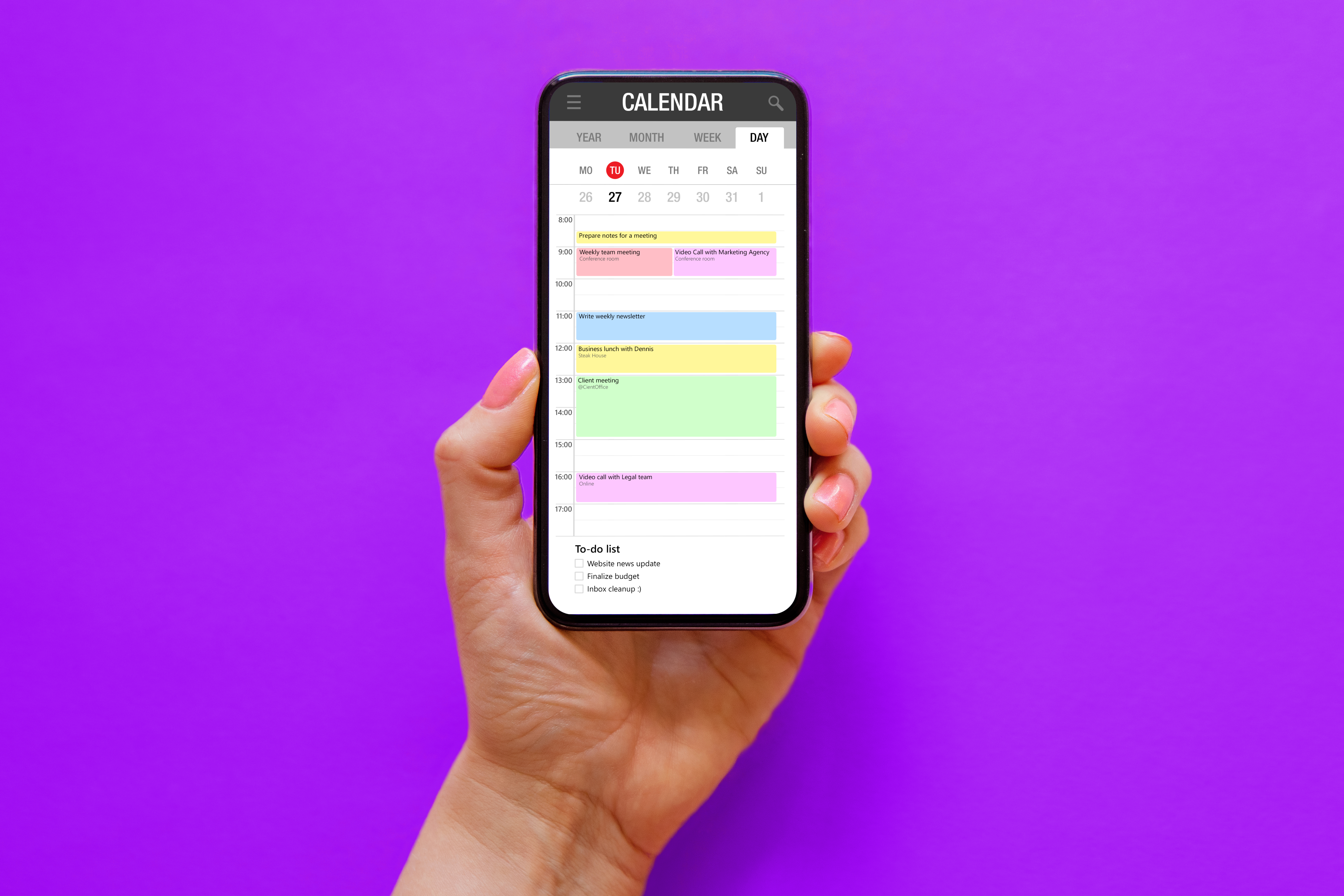 Do you manage multiple calendars? Do you have a work calendar and a personal calendar? Maybe you have a shared family calendar too? Perhaps a side-hustle, with its own account (you want that separated from your daily job I would imagine)? A public calendar that your kid’s school is sharing with everyone? Great, you are pretty much in the same boat as everyone else! Your daily schedule consists of school drop-off and pick-up, daily job meetings and events, blended with some personal events, some family ones and occasionally decorated with some events / meetings for your side hustle.
Do you manage multiple calendars? Do you have a work calendar and a personal calendar? Maybe you have a shared family calendar too? Perhaps a side-hustle, with its own account (you want that separated from your daily job I would imagine)? A public calendar that your kid’s school is sharing with everyone? Great, you are pretty much in the same boat as everyone else! Your daily schedule consists of school drop-off and pick-up, daily job meetings and events, blended with some personal events, some family ones and occasionally decorated with some events / meetings for your side hustle.
Sounds like a lot? Not to worry though: you have your mobile, the unsung hero of our daily lives. Using your calendar app on your mobile, you can get a unified view of your daily schedule across all of these calendars. Color-coded too, so you can see right-away whether it’s a family event (from family calendar), a work meeting (from your day job), a side hustle event or something else.
Be it iPhone or Android, Google Calendar or Microsoft Calendar, likely that your mobile calendar will look something like this: all the events from all calendars in one single unified view:
This is all great… for you! Because while it is true that a mobile calendar app provide a unified view across all your calendars, it has to be double underlined that it provides this unified and clear view of your schedule and availability for you and you only.
What we mean by that is that you have a clear idea of your schedule and when you are or are not available, but no one else does! Why does this matter? Well, imagine that a colleague at work sends you a meeting request for 3pm: your work calendar is free during that period after all. However, you can see that in your personal calendar you have a doctor appointment. (You wouldn’t put that in your work calendar because why would you want your employer and your colleagues to know of such details!) So what do you do? Since your colleague can’t see that appointment and they have no idea of the timelines involved, you email them back and say “hey, I can’t do that time, I have a doctor appointment from 3-4pm. How about 5pm?” (You might even look in your colleague’s calendar to see if they are available at 5pm before you suggest.) Suppose they have the same problem as you (multiple calendars) and they reply back “Shoot, I can’t, I have an appointment 5-6pm”. Now the email or slack ping-pong starts where you both are trying to play some time Tetris to figure out when to meet. All of this could be solved if your colleague had the same view of your schedule and availability as you do (without the personal details around the doctor appointments of course). If only you personal calendar also marked time in your work calendar when you have such appointments!
Imagine also a scenario where your side-hustle, where you do some consulting here and there, wants to have a meeting with you to discuss some new item you need to take into account in the work you do for them (at the weekend or in your spare time). They likely set you up with an account (email, calendar, etc, the works!) in their system. Which, of course, you can see on your mobile phone. So you indicate to them “I’m free most evenings after about 5pm, book some time with me sometimes this week and let’s talk”. They look in your side hustle calendar, see that Tuesday at 5pm is free and send you a meeting invite. Except that in between you sending that email and they setting up the meeting a few hours later on, your boss sets a meeting at the same time to talk about a new client. So now you have a calendar conflict and you are double-booked! What do you do? Well, again, the email ping-pong starts where you email back your side hustle and tell them that now that timeslot at Tuesday at 5pm is taken. They say no problem and move the meeting to Thursday at 5pm. Which works, but if one of your colleague now sets up something for that Thursday at 5pm, you are back to square 1. Because, again, your availability is know to you, and you only! Your side hustle doesn’t know what it’s your daily job calendar! Nor do they know what’s in your private calendar. Your family doesn’t know what’s in either your work calendar or your side hustle schedule, as you probably only shared your personal calendar with them — and legally you are very likely not allowed to share your work calendar with your family! As for your employer, you definitely don’t want them to have access to your side hustle, nor do you want to give them access to your personal calendar. None of these parties has any idea what goes on in your schedule, they only know what goes on in that little slice of your life they have access to: the calendar you share with them. That renders more often than not an incomplete view of your availability — which leads to double bookings and calendar conflicts. Which, in turn, leads to playing time Tetris over email until you both find a timeslot which works.
By and large, people don’t care about what you do during the time marked “busy” in your calendar, but rather when you are busy and when you are not. As such, a simple way to solve this problem is if somehow all of your calendars “talk” to each other and inform each other of when you are and are not available. Do you have a personal appointment, booked in your personal calendar? If only your personal calendar could inform all your other accounts about it — and then all of your calendars need to do is just mark that spot as “busy”, so anyone who looks at any of your calendars can see you are in fact NOT available during that time. Your side hustle books some time with you? If only your side hustle calendar “talked” to all your other calendars to inform them you are now busy during that time! Your kids school just announced their end of the year assembly? If only that calendar also “talked” to all your calendars to book that afternoon off across the board!
That would be a great way to manage your availability, such that your schedule and availability is know to you as well as everyone else who interacts with you. And that’s exactly what Calendrz does: syncs multiple calendars to make sure they “talk” to each other and reflect your true availability across all schedules. Try it!








